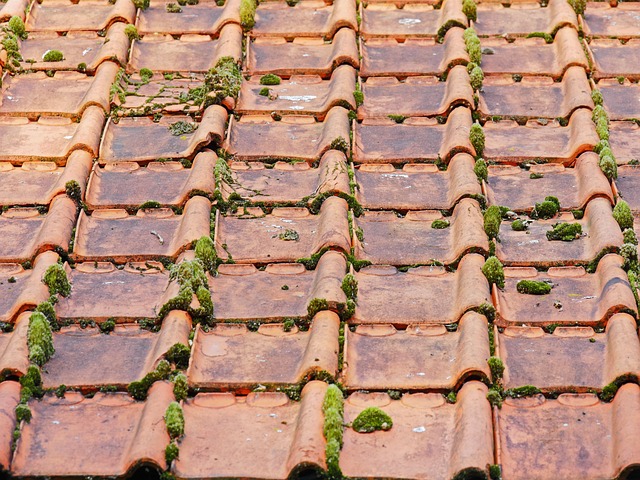The construction industry is rapidly adopting eco-friendly roofing to reduce its carbon footprint. Sustainable roofing uses green roofing materials like solar panels and water-efficient membranes for reduced energy consumption, waste minimization, and enhanced biodiversity. Recycled roofing materials divert waste from landfills while providing durable options. These environmentally friendly roofing solutions lower carbon emissions and promote a harmonious relationship between buildings and nature, marking a revolutionary shift toward sustainable practices.
In today’s digital era, the push for environmentally responsible construction practices is stronger than ever. At the forefront of this green revolution is eco-friendly roofing, a growing trend that goes beyond aesthetics to mitigate environmental impact. This article explores various facets of sustainable roofing, from green roofing materials to energy-efficient and solar roofs. We also delve into eco-conscious practices, highlighting innovative solutions like water-efficient roofs, all aimed at promoting a healthier planet. Discover how these sustainable roofing solutions can not only beautify your home but also contribute to a greener future.
- Understanding Eco-Friendly Roofing: The Green Revolution in Construction
- Sustainable Roofing Materials: Innovating for a Better Environment
- Energy-Efficient and Solar Roofs: Harnessing Clean Energy for Your Home
- Eco-Conscious Practices: Integrating Water-Efficient Solutions for Long-Lasting Roofs
Understanding Eco-Friendly Roofing: The Green Revolution in Construction
The construction industry is undergoing a green revolution, and at the forefront of this shift is eco-friendly roofing—a sustainable solution that promises numerous environmental and practical benefits. Eco-conscious builders and homeowners are increasingly opting for roofing materials that offer both performance and ecological responsibility. This movement towards sustainable roofing is not just a trend but a necessary step to mitigate the industry’s carbon footprint.
Eco-friendly roofing involves the use of green roofing materials that reduce energy consumption, minimize waste, and promote biodiversity. Among the popular choices are solar roofs, which generate clean energy, and water-efficient membranes that significantly cut down on irrigation needs. Recycled roofing materials also gain traction as they divert waste from landfills while providing durable options. This approach to environmentally friendly roofing not only reduces a building’s carbon emissions but also contributes to a more resilient and harmonious relationship with nature.
Sustainable Roofing Materials: Innovating for a Better Environment
The shift towards sustainable and eco-friendly roofing solutions is revolutionizing the construction industry. Traditional roofing materials often contribute to environmental degradation, but innovative manufacturers are now leading the charge with green alternatives. Eco-conscious homeowners and businesses are embracing eco-friendly roofing, which goes beyond aesthetics; it’s a powerful way to reduce the carbon footprint.
Sustainable roofing options encompass a range of products, from recycled roofing materials to cutting-edge solar roofing. These materials not only minimize waste but also offer excellent energy efficiency, helping to regulate indoor temperatures and reduce the need for air conditioning. Additionally, green roofing materials, such as plants and vegetative systems, contribute to water conservation through effective runoff management, further benefiting local ecosystems.
Energy-Efficient and Solar Roofs: Harnessing Clean Energy for Your Home
Roofing doesn’t have to come at the cost of our planet’s health. Eco-conscious homeowners are increasingly turning to energy-efficient and solar roofs as sustainable roofing solutions. These innovative options not only reduce carbon footprints but also offer long-term savings on energy bills. By harnessing the power of the sun, solar roofing turns your roof into a clean energy generator, contributing to a greener future.
Gone are the days when roofing materials were primarily derived from non-renewable resources. Today’s green roofing materials, including recycled and sustainably sourced options, offer excellent performance while minimizing environmental impact. From recycled roofing materials to water-efficient designs, these innovations showcase that eco-friendly roofing is both stylish and responsible. Embrace the future of roofing with these sustainable alternatives and make a positive difference for our planet.
Eco-Conscious Practices: Integrating Water-Efficient Solutions for Long-Lasting Roofs
In the realm of eco-conscious construction, adopting sustainable practices for roofing is a game-changer. Integrating green roofing materials offers a path towards environmentally friendly roofing while ensuring long-lasting and energy-efficient roofs. One such solution lies in solar roofing, which not only reduces carbon footprints but also provides a reliable source of renewable energy. Solar panels seamlessly integrate into roof designs, offering both functionality and aesthetics.
Furthermore, water-efficient roofing solutions are crucial for conservation efforts. Recycled roofing materials play a significant role here, as they minimize waste and reduce the need for new resources. These materials not only contribute to sustainable roofing but also provide excellent durability and insulation properties. By embracing such eco-conscious roofing practices, builders and homeowners can make a substantial impact on the environment without compromising on the quality and longevity of their roofs.
In conclusion, embracing eco-friendly roofing is not just a trend but a necessary step towards a more sustainable future. By opting for green roofing materials, energy-efficient and solar roofs, and implementing eco-conscious practices with water-efficient solutions, homeowners can significantly reduce their environmental impact while enjoying long-lasting, high-performance roofs. This shift to environmentally friendly roofing is a key component in the global push for a cleaner, greener world.
